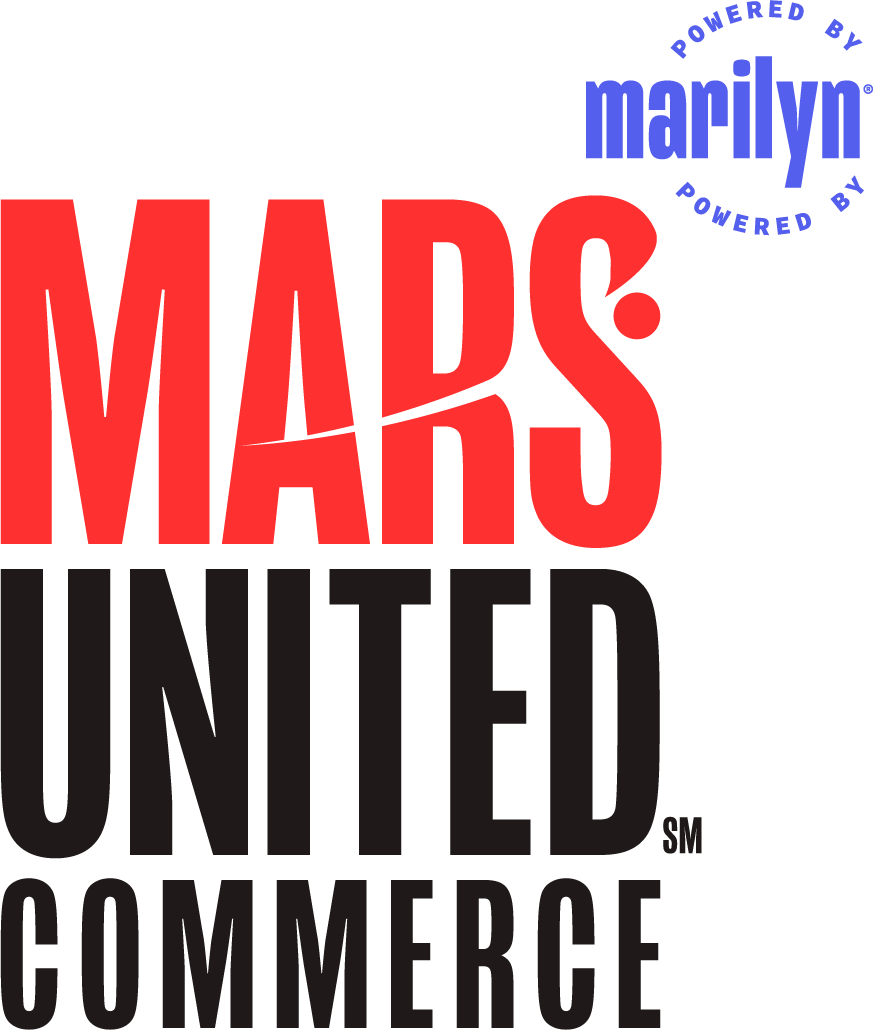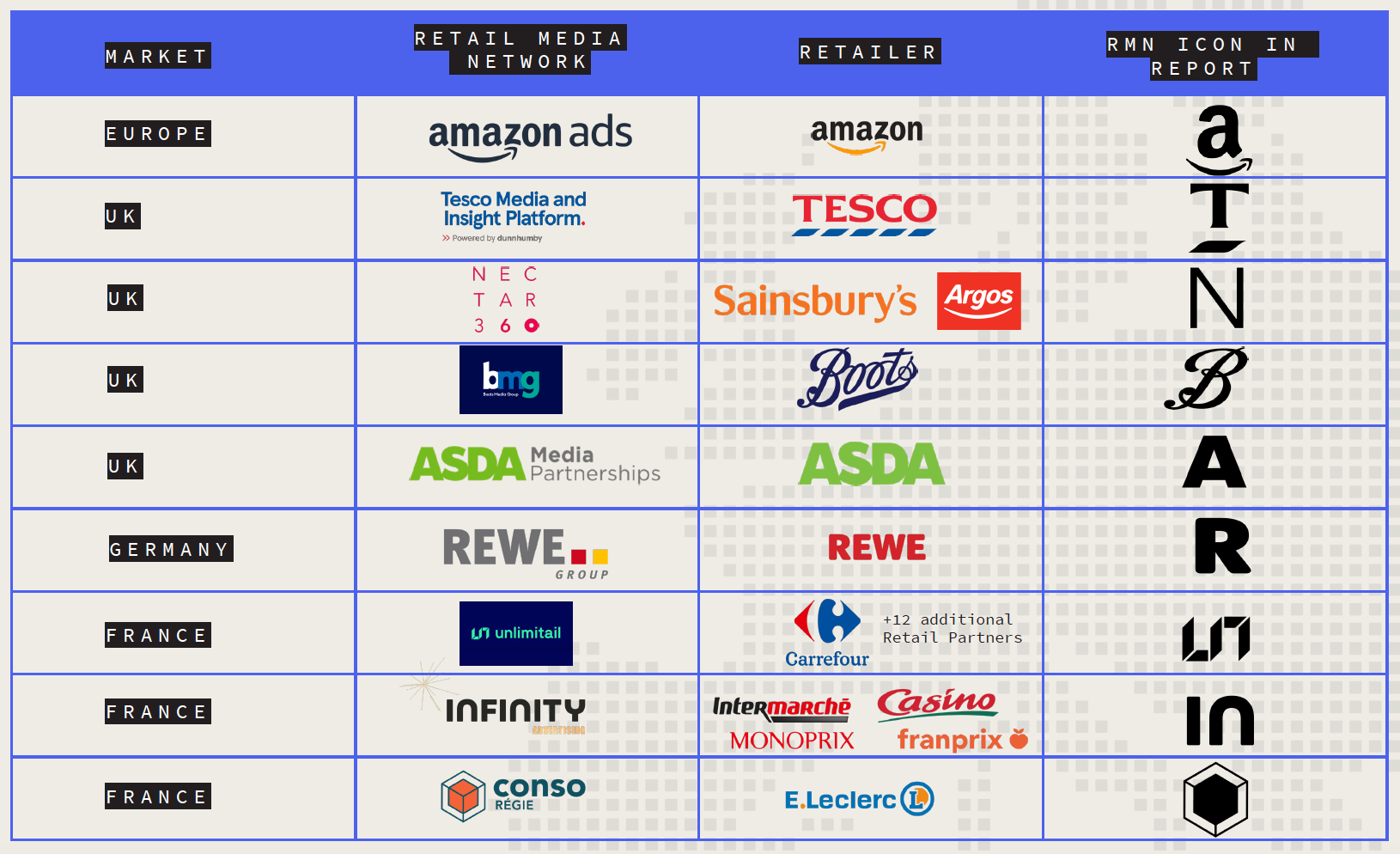By Katrina Smart, Mars United Commerce

Originally published by MarTechCube
The IAB expects the rapidly growing retail media industry in Europe to reach €25 billion by 2027. As the market continues to grow and an increasing number of retail media networks launch across Europe, the challenge for brands to determine the best investments becomes even more complex.
Although the market in Europe is much more nascent than in the U.S., retail media has already become a potent tool for European brands to reach target audiences. By partnering with these networks, brands can tap into the retailer’s customer base, gain access to valuable insights, and deliver personalised and contextually relevant messages to shoppers that increase the chances of conversion at the point of purchase.
Why the European Market Will Explode
One of the key reasons for the growing popularity of retail media networks is their ability to deliver highly relevant, first-party data-driven, targeted offers. This is achieved through the collection and analysis of vast amounts of customer data, allowing retailers to tailor their advertising messages and promotions to individual shoppers. Another factor driving the adoption of RMNs is the rapid growth of ecommerce. As more and more consumers shop online, retailers are looking for ways to reach them with targeted ads directly on their websites and apps. RMNs act as a centralised platform that enables brands to place their ads on relevant product pages or in targeted email campaigns.
Retailers are also using RMNs to control the flow of products and manage their inventory more effectively. By leveraging their websites and apps as closed ecosystems, retailers can manipulate prices, highlight specific products, and offer targeted promotions, thereby optimising product movement and maximising sales. Moreover, RMNs enable contextually relevant, flexible, mutually beneficial, and creative brand partnerships around timely events (like holidays, seasonal or sporting events, etc.).

Source: Retail Media Report Card: Europe
This collaborative approach enables brands and retailers to co-create campaigns that resonate with consumers and drive sales. The best RMNs also provide highly detailed performance measurement that brands and retailers find invaluable. This data-driven approach quantifies the effectiveness of campaigns and informs the optimisation of strategies to improve decisions about future investments.
In addition, RMNs represent a new, more retailer-controlled frontier that operates outside the existing macro advertising model. This shift in power gives retailers more say in how their data is used and how their brands are represented, fostering a more collaborative and mutually beneficial relationship with their ad partners.
Choosing the Right Partner
Although retail media is a key tool in the commerce marketer’s toolkit, it can be highly complex for brands to navigate the market. Among the frustrations we hear from clients are the many differences in capabilities, not only from one market to the next, but among the networks in each market. Other key challenges include:
- Internal legacy structures which make it hard for brands to plan holistically.
- Language barriers across the vast European market that force some to manage planning and tactics locally rather than regionally.
- The lack of widely adopted standards in the measurement and insights that networks provide.
It is essential to understand as much as possible about each retail media network so you can effectively plan and invest your marketing spend where it will achieve the best results. With the number of RMNs growing rapidly, knowing which are the right fit for your business can take time and effort. Here are some key factors to consider when choosing an RMN partner:
1. Understand your goals and objectives
Before you start looking for an RMN partner, it is essential to clearly define your goals and objectives. What do you want to achieve with retail media? Are you looking to increase brand awareness, drive website traffic, or generate sales? Once you know your goals, you can narrow your search to RMNs that are best equipped to deliver them.
2. Assess the reach and customer base
Understanding the size, scale and makeup of the retailer’s audience are critical factors to consider when choosing an RMN. You want partners that have a strong presence in the markets you want to reach. Understanding the retailer’s audience segmentation is necessary to ensure it aligns with the target audience you’re trying to reach.
3. Evaluate data and analytics capabilities
The RMN’s data and analytics capabilities are crucial for effectively measuring and optimizing your campaigns. Make sure the RMN provides transparent reporting and access to critical data points. You should also be able to track your results across multiple channels, including the retailer’s website, app, and social media pages.
4. Consider pricing and fees
Pricing can vary significantly across RMNs, so comparing rates and fees is important before signing on. Some RMNs charge based on CPM (cost per mille), others CPC (cost per click) or CPA (cost per acquisition). When comparing pricing options, you should also factor in the price of creative development and campaign management.
5. Evaluate the technology and platform
The RMN’s technology and platform should be user-friendly and easy to integrate with your existing marketing stack. Ensure the platform provides the features and capabilities you need to create effective campaigns. You also should be able to easily measure and optimize your campaigns using the platform’s reporting tools.
6. Research the RMN’s reputation
It’s important to investigate the RMN’s track record before forging a partnership. Read reviews from other brands and agencies to learn from their experiences. You should also check the RMN’s website and social media pages for testimonials and case studies.
7. Consider support and customer service
A dedicated account management or support team is also essential. Ensure the RMN provides responsive and knowledgeable support to help you navigate the platform and troubleshoot any issues. You also should have easy access to customer support resources, such as FAQs and training opportunities.
8. Explore test & learn opportunities
Find out if the RMN offers test & learn opportunities for exploring new channels and capabilities. Working in collaboration with the RMN to understand performance through beta and trials is a great way to get ahead of the curve and build the partnership.
9. Ensure that agreements will meet your needs
Negotiate any joint business plans and partnership agreements carefully. Make sure that they are aligned to your internal goals and will achieve the retail plans you’ve established as part of your broader business and marketing plans. Look for added value within your commitments and align your spend strategically to promotional periods, seasonal events, and category moments.
10. Continuously evaluate performance. Once you’ve chosen an RMN partner, monitoring and assessing your performance is vital to long-term success. Regularly review your campaign results and adjust as needed. It would help to also tracke your ROI (return on investment) to ensure your retail media campaigns deliver value for your business
From highly targeted advertising to data-driven insights and flexible partnerships, retail media networks offer a compelling set of benefits that are revolutionizing the way brands and retailers connect and convert with shoppers at the point of purchase. As the retail landscape continues to evolve, RMNs are poised to play an even more significant role in shaping the future of digital advertising.
To learn more about evaluating RMNs, read the industry’s first-ever “Retail Media Report Card: Europe.”

About the Author
Katrina Smart is Mars United’s Commerce Media Director for Europe, based in London. She is responsible for building out the agency’s practice across the continent and working with her colleagues in the U.S. and elsewhere to build a more connected global media operation. Before joining Mars United, Smart served as Senior Director of Retail Strategy for GIG Retail where, among other duties, she helped CPGs plan their investments with client Asda’s retail media network.
